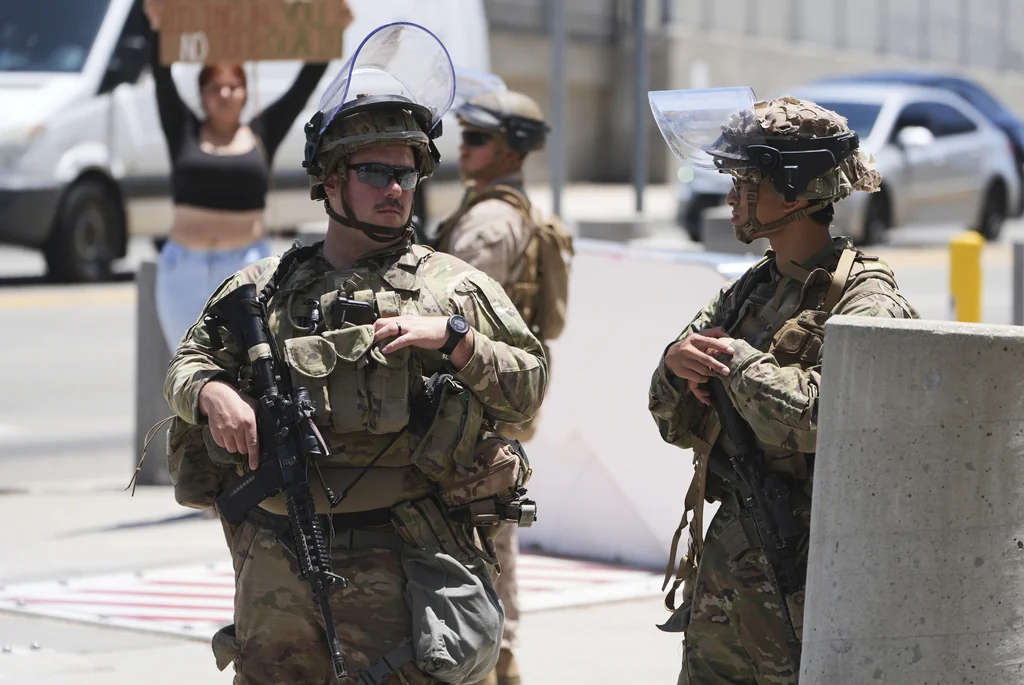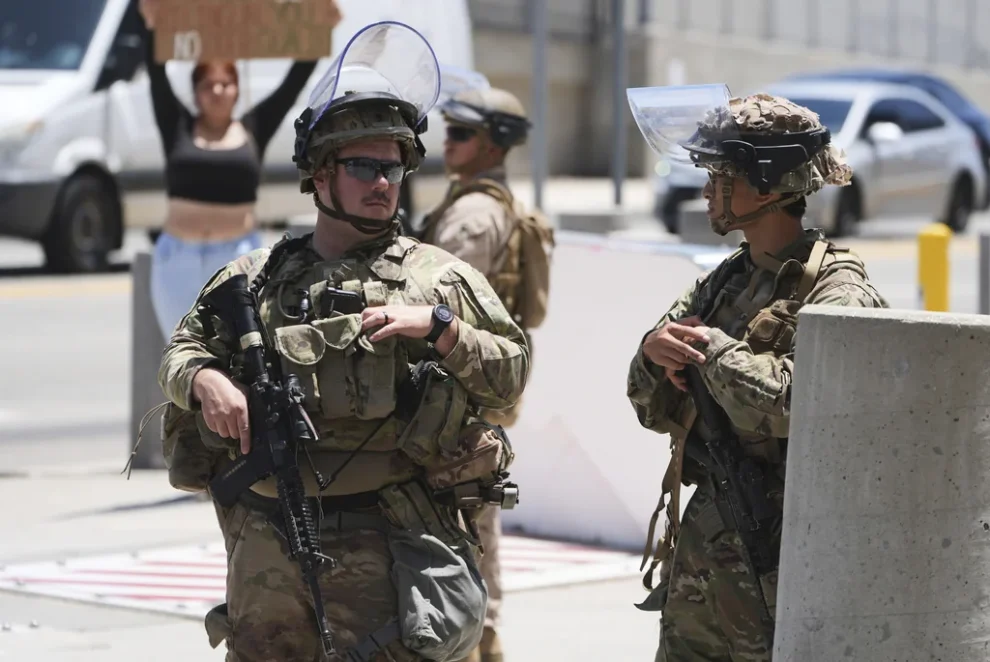A San Francisco federal judge will hold a landmark bench trial this week to determine whether the Trump administration violated a 19th-century law barring the use of military forces for domestic law enforcement when it sent United States Marines and California National Guard troops into Los Angeles to respond to immigration protests.
Senior U.S. District Judge Charles R. Breyer, the brother of retired Supreme Court Justice Stephen Breyer, will preside over the three-day trial beginning Monday, marking the first time in U.S. history that the Posse Comitatus Act of 1878, a post-Reconstruction law that prohibits federal military involvement in civilian policing, will be tested in a courtroom.

The case, Newsom et al. v. Trump et al., stems from Democratic Gov. Gavin Newsom’s lawsuit against President Donald Trump, filed on June 9. The lawsuit alleges that the president’s federalization of 4,000 California National Guard troops and deployment of Marines in support of immigration enforcement operations and efforts to quell riots was illegal.
The lawsuit has become a constitutional clash between a sitting president and a state governor.
While Judge Breyer temporarily blocked Trump’s actions last month, the 9th U.S. Circuit Court of Appeals quickly reversed that ruling, granting the federal government continued authority over the National Guard’s presence in Los Angeles.
However, the appellate panel, composed of Judges Mark J. Bennett, Eric D. Miller, and Jennifer Sung, did not weigh in on whether the president’s order violated the Posse Comitatus Act.
Following that reversal, Breyer ordered an expedited discovery process on the Posse Comitatus question and denied further delays. “The Court will not entertain requests or stipulations for extensions of time,” he wrote.
The trial will also investigate the involvement of U.S. Marines alongside immigration agents in crowd control and public security. Last month, federal officers in tactical gear were witnessed patrolling MacArthur Park, some on horseback, despite objections from Newsom and Democratic Los Angeles Mayor Karen Bass.
Breyer has allowed state lawyers to depose Ernesto Santacruz Jr., the Department of Homeland Security field office director in Los Angeles, ruling against Justice Department objections.
“Defendants themselves offered up Mr. Santacruz on the subject of what the federalized National Guard and U.S. Marines are doing in Los Angeles,” Breyer wrote in a July 9 order.
The Posse Comitatus Act has rarely been litigated in civil court, and courts have generally ruled in favor of the government when it arises in criminal cases. In U.S. v. Red Feather (1975), a federal judge found that evidence of troops engaging in “direct law enforcement” during the Wounded Knee occupation could be admitted, but passive military support was excluded.
More recently, the 9th Circuit ruled in U.S. v. Dreyer (2015) that evidence collected by a Navy intelligence officer investigating civilian crimes was not automatically inadmissible, even if the Posse Comitatus Act may have been violated.
Since the Trump administration deployed more than 4,000 National Guard soldiers and 700 Marines to Los Angeles in May, there has been a withdrawal of more than 2,000 troops from the area in light of diminished unrest and riots. But the legal question looms large amid Trump’s recent considerations of deploying National Guard elsewhere in the country, potentially even Washington, D.C., as he has said he may “federalize” the Nation’s Capital in response to unmitigated youth lawlessness.
TRUMP WITHDRAWS ROUGHLY 2,000 NATIONAL GUARD MEMBERS FROM LOS ANGELES
The outcome of this week’s trial could set a major precedent for executive power and the domestic use of the military.
It’s unclear how soon Breyer will rule following the three-day trial, which is expected to continue into Wednesday.
























